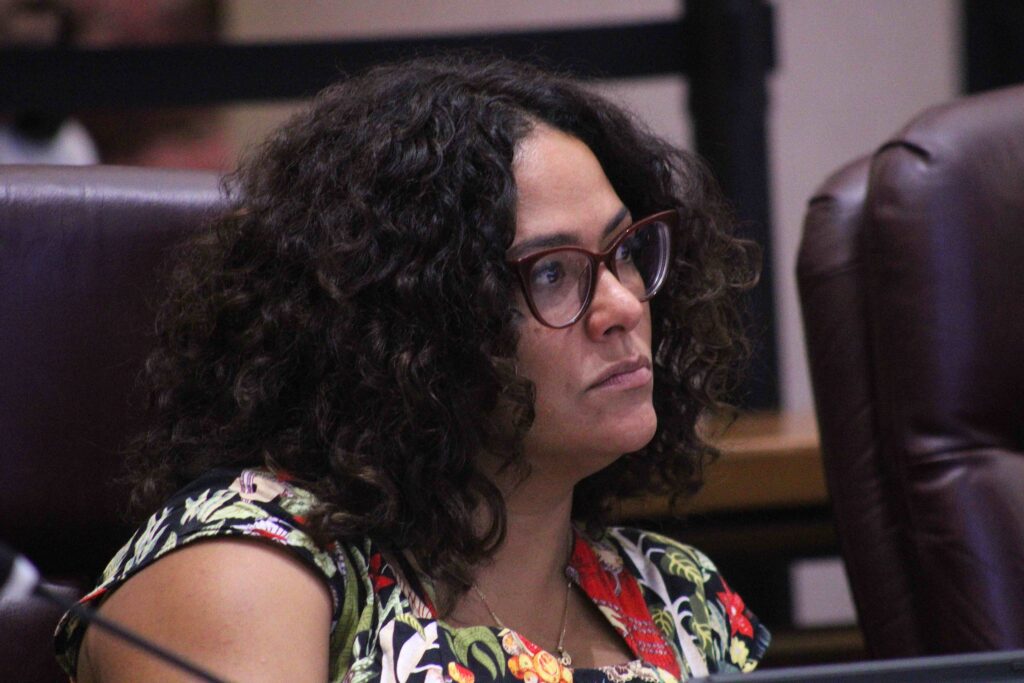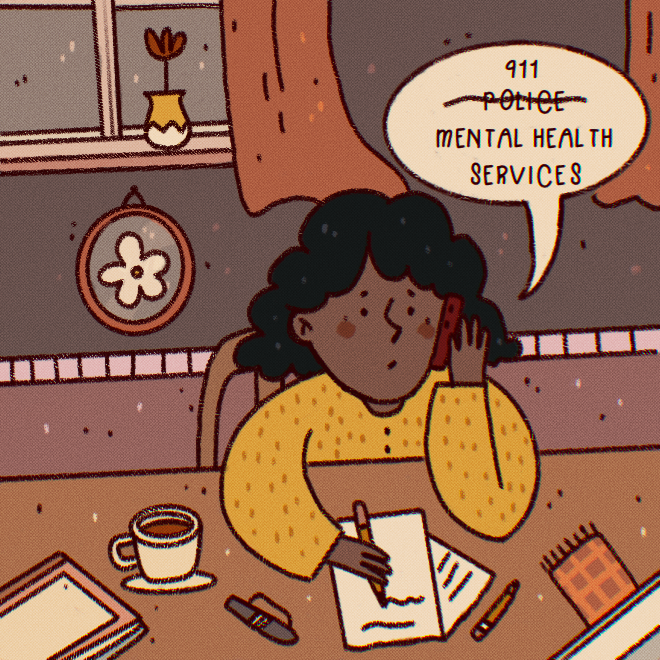On Wednesday, the City Council approved an ordinance creating a working group to address how Chicago supports people with mental health issues, bringing the city a step closer to implementing Treatment Not Trauma, one of Mayor Brandon Johnson’s campaign promises. The creation of the working group is a win for supporters of Johnson’s progressive agenda, and for the many organizers who have fought for years to reopen mental health clinics.
The council deferred a vote until Friday on Johnson’s ordinance that would raise the minimum wage for tipped workers over the next five years so that it meets the city’s full minimum wage (which is currently at $15.80) by 2028. Toward the end of the meeting, the council held a public hearing on Bring Chicago Home, a proposal to raise the real-estate transfer tax on property sales above $1 million to fund homelessness services and prevention.
The new Mental Health System Working Group is tasked with creating a plan to reopen mental health clinics closed by former mayor Rahm Emanuel, as well as to have healthcare and social workers—instead of police—respond to mental health emergencies. The working group will deliver a report to the mayor and the Committee on Health and Human Relations by May 31, 2024.
The group will include representatives from the Department of Public Health, Office of Emergency Management and Communications, Fire Department, Human Resources, the mayor’s office and other agencies, according to a statement from the mayor’s office announcing passage of the ordinance. The Police Department was not among the agencies listed, although it said other agencies “may be invited to join the working group as needed.”
33rd Ward Ald. Rossana Rodríguez Sánchez told reporters Wednesday the working group intends to call for six shuttered mental health clinics—the same number Emanuel closed— to reopen over the next four years.
Treatment Not Trauma was first introduced to the City Council by Rodríguez Sánchez in 2020. Then-mayor Lori Lightfoot rejected Rodríguez Sánchez’s proposal to have a non-police response for mental health emergencies, instead favoring a co-responder model that sends police and healthcare workers. Lightfoot also broke a campaign promise to reopen the mental health clinics.
Last year, organizers supporting Treatment Not Trauma fanned out across the 6th, 20th, and 33rd Wards to gather signatures to get a non-binding referendum on the November 2022 ballot asking whether the city should reopen mental health clinics and develop a non-police mental health emergency response system. In each of those wards, voters supported the measure by more than ninety percent. Spurred in part by those same organizers, Johnson promised during his campaign to reopen the clinics and support Treatment Not Trauma.
On Wednesday, Rodríguez Sánchez told the Weekly the fight for equitable access to public mental health services has been a decades-long struggle. “At least for the last decade, there have been people on the ground trying to fight to reopen the public mental health centers,” she said. “I am very proud of the work that we have done to renew that fight with the understanding that we not only need those [mental health] centers to reopen, but we need comprehensive care.” She said that includes crisis prevention and a non-police crisis response system.

“That is definitely a huge step forward for us, because now we are inside of the administration and we’re being able to have conversations about these commitments,” Rodríguez Sánchez added.
“For decades, we have had so many neoliberal policies that have been taking resources away from the institutions that could actually deliver this type of care.”
The working group will bring those people who have been most impacted by gaps in the public mental health system to the table, she said. “It allows communities to be able to have a say in how these systems are going to be established and implemented,” Rodríguez Sánchez said.
According to a 2022 survey by the Chicago Department of Public Health, about seventy-five percent of Chicagoans who had moderate or serious psychological distress reported that they were not taking medication or being treated for mental health or emotional conditions.
In the statement, Johnson called the working group a “tremendous step forward in our journey to ensure that all Chicagoans receive the mental health resources and support that they need. My administration is committed to building the capacity to respond to mental health crises with treatment—not trauma.”
Jim Daley is an investigative journalist and senior editor at the Weekly.

